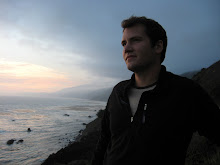 (Photo courtesy of Paola Molina)
(Photo courtesy of Paola Molina)As researchers, we are constantly bombarded with ethical questions about what we are doing. Working with undocumented migration I have been personally confronted with unfamiliar and uncomfortable territory. Besides the challenge of working with a survey when I am more comfortable doing qualitative anthropological work (i.e. open ended interviews and recording my experiences collaborating and living with people), the frustration of being unable to provide any sort of relief to people that are kind enough to share their lives and their experiences with us, is by far the most difficult aspect. Most of my research experiences have been with Community Based Participatory Research (CBPR) where we worked side by side with our partners to collaborate on environmental projects selected by our local partners. With migration research, we are hoping that, by providing information in a methodologically sound way we can make an important contribution to activists and policy makers attempting to achieve immigration reform. However, as a privileged U.S. citizen that is only able to catch a glimpse of the lives that other people cannot escape, is it not my responsibility to have a more immediate impact on people's lives.
On an individual level we are completely powerless to affect these people's lives. Although I, and every (almost) other researcher has slipped a few bucks to individuals with truly extraordinary situations, I could not do it for everyone. Moreover, that little bit of help may relieve some of the immediate issues they are presented with when repatriated to Mexico, but people still need to pay back an enormous debt, trying to find a way home or attempt another crossing.
I do not think I will ever get desensitized to seeing middle aged men that have worked hard their whole lives, campesinos, construction workers, or fathers that break down in tears after their experiences along the border. One night I was particularly struck by how hard it is to be a human being of limited resources and power. I was interviewing a man in his 30s named Raul that was distraught about not being able to get to Kansas City, Missouri and see his two young children that happen to be U.S. citizens. He started to cry several times, wiping his eyes sheepishly and turning his head from me. We began talking about how despite accusations that the undocumented migrants are terrorists or are taking their jobs, gringos will not work in McDonald's. He used to be able to work as a farmer, a campesino in Mexico but cannot make a living at it anymore. He got a DUI in the U.S. and was deported. Now he is trying to get his kids to come back to live in Mexico.
While we were having the last part of our conversation, a young girl, maybe 11 or 12 years old came into the chapel and kneeled down before the picture of the virgin and began sobbing. Her hands were clasped tightly and her head pressed against her forearms. Her mother (or guardian) soon joined her and placed a comforting hand on her back. It did little to stop the young girl’s sobs. She knelt there for about 20 minutes before standing and walking out of the room and back to the dormitory. I do not know what happened to her. I didn’t have the opportunity to talk to her, and moreover, I don’t know if it would have been appropriate. I wish we knew.
I could not get the image out of my mind. I felt helpless that children suffer and I cannot do anything about it. Moreover, I felt guilty for getting in my car and driving back to the U.S. Should I stop? Am I engaged in a futile, voyeuristic exercise? I will never stop questioning my actions. I hope that I keep doubting my every move as long as I do this work. If it were not for this questioning, I would not have the same satisfaction when people thank me for talking to them. A young man told me that "nunca en mi vida, pense que iba a conocer alguien haciendo esto," "In all my life, I never thought I would meet someone doing this," talking to migrants. Or a man that had been in jail thanking me profusely, informing me that he had no idea how good it would feel to talk about his experiences. This was a man whose demeanor initially scared me, but he came close to tears when he shook my hand goodbye.
I am not a therapist, nor a psychologist. I am a researcher and as such engaged in an extractive process where I come to a foreign land and take information from people before leaving. I do not know how to help people with the psychological trauma and I am equally aware that not everyone enjoys their experience talking to me but any time someone expresses pleasant surprise at finding a gringo interested in documenting what happened to them, I am glad I came.





Not your job to directly help them, man. Misleading title, by the way. I thought either you would be unable to research or researching your inability. You can be a sensationalist journalist yet!
ReplyDeleteIt touched my heart when you reported the story of the young girl, praying before the Blessed Virgin Mary, and sobbing her heart out. I pray she found some solace in those tears that she shed. I pray her little heart will be healed.
ReplyDelete